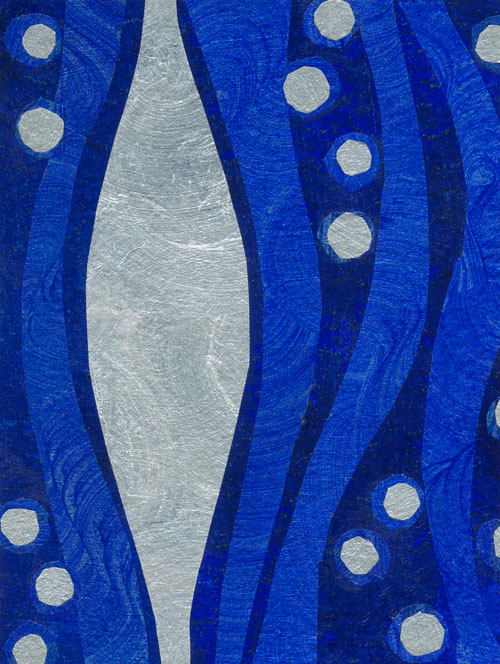
Night Passage © Jan L. Richardson
Here at The Grünewald Guild, where I’ve finished a week of teaching and am beginning a week of writing, we gather for Matins at 8:30 AM. Matins invites us to a time of creative reflection and prayer before we head off to class or to whatever else will occupy our morning energies. Each Tuesday, which marks the first day of classes, Richard Caemmerer leads the service. Along with his wife Liz, Rich founded the Guild and directed it for twenty-five years until retiring a couple of years ago. Last week he began Matins by showing us a volume of the New Testament that his father-in-law had given him years ago. Printed in the early 1900s, and falling apart, this two-volume set was designed for those who are blind. Rather than using the system of patterned dots that Louis Braille devised, which took some time to gain widespread acceptance, the pages of this New Testament consist of raised letters that spell out each word of the scriptures.
Rich passed around a pile of the pages that have come loose from their binding. As I looked at the first page that came my way, and traced its letters with my fingers, I realized it was the gospel reading for this Sunday, Matthew 14.22-33. When Matins was over, I told Rich about the bit of synchronicity. “Well, then,” he told me, “you must have that page.”
And so I have the page here on my desk that overlooks the river that runs past the Guild. Tracing its letters once again, I’ve been thinking about seeing, and not seeing, and how difficult it sometimes is to learn to see, to recognize what’s before us.
The page with the raised letters describes how the disciples have spent the night on the waves, their boat tossed by the wind. When Jesus comes walking toward them on the water in the early, still-dark morning—“in the fourth watch of the night,” the King James Version more poetically puts it—they do not recognize him. Matthew tells us of the disciples’ terror, how they cry out in their fear, “It is a ghost!” Jesus calls words of assurance, yet they remain uncertain of what they see.
Peter decides to run something of a vision test here, calling out to the ghostly form that if he really is the Lord, “then command me to come to you on the water.” Jesus does. Peter hops out but then begins to falter on the waves. History has laid a great burden on Peter at this point in the story, and perhaps it is this that so weighs him down in the water, rather than the seeming failure of faith that many interpreters have attached to him. When Jesus catches Peter and pulls him into the boat, saying, “You of little faith, why did you doubt?” we have tended to hear these as words of rebuke. As a consequence, we sometimes carry around the cumbersome notion that if we just had enough faith, if we could, by force of will, generate a critical mass of it, a magical measure of it, we could fix whatever is wrong with us. That is a terrible load to carry by ourselves, and it’s not what Jesus intends.
I hear Jesus’ words to Peter as words of encouragement, not of harsh rebuke. His words are gentle and good-natured, acknowledging Peter’s gumption in stepping out of the boat. There is, however, a clear invitation and challenge that Jesus extends to his soggy friend. Jesus recognizes Peter. Every step of the way, on sea and on land, he sees him for who he is: impetuous, impulsive, devoted, good-hearted if not always clear-headed. Jesus wants Peter to be able to see him, to recognize both who he is and who he is calling Peter to become. Jesus knows that Peter’s sight is incomplete, that his vision will falter, that he is still learning to see. But he is learning.
In her book Pilgrim at Tinker Creek, Annie Dillard writes of reading Marius von Senden’s book Space and Sight. She conveys von Senden’s descriptions of what happened when eye surgeons began to perform the first successful operations to remove cataracts. For many of those who had been born with blindness, the experience was terrifying in the beginning. Their brains had never learned how to process and make sense of the images that now confronted their eyes. Shapes appeared flat, meaningless, fearsome. One young man, raised in what was then called an asylum for the blind, threatened to tear his eyes out. A newly sighted girl walked around for two weeks with her eyes closed.
Gradually, Dillard says, many of them passed through their fright and began to work with what their eyes were trying to tell them. She describes one man who, trying to develop his depth perception, would toss a shoe out in front of himself. He would estimate how far away the shoe was, walk toward it, pick it up, toss it again. Slowly, he began to see.
When Peter got out of the boat, it was his way of tossing a shoe, testing his depth perception there on the waters, feeling his way toward the one whom he was still learning to recognize and to know. Peter faltered but did not fail, and when he returns to the other disciples, he carries a new piece of vision with him. Matthew tells us that when Jesus and Peter get into the boat, the wind ceases, and those in the boat worship Jesus, saying, “Truly you are the Son of God.” For this moment, at least, in this space of calm on a once-contrary sea, they pass through the darkness, and they see.
Where do you recognize the presence of Christ in the midst of your days? How might God be challenging you to deepen your vision and stretch your sight? Is it more challenging for you to recognize the holy in places of chaos or of calm? What are you looking for, and looking at; are you turning your vision toward things that will help you see and know and respond with greater clarity?
By whatever ways it comes to us—by touch and sight and sound and all our senses—may we recognize the presence of the Christ who reaches out for us. Blessings.
[To use the “Night Passage” image, please visit this page at janrichardsonimages.com. Your use of janrichardsonimages.com helps make the ministry of The Painted Prayerbook possible. Thank you!]


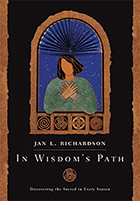
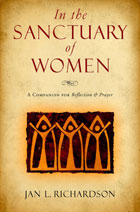
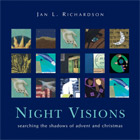
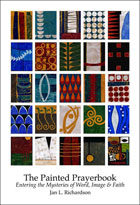
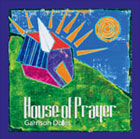
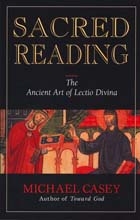
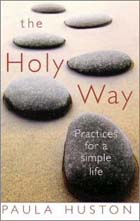
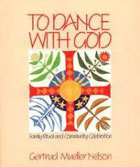
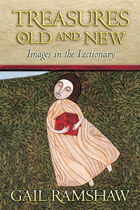
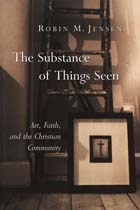
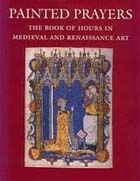
August 6, 2008 at 12:08 AM |
thank you for this reminder. i often thought of Jesus’ rebuke not as a harsh one, but more a statement of fact. perhaps with a twinge of sadness.